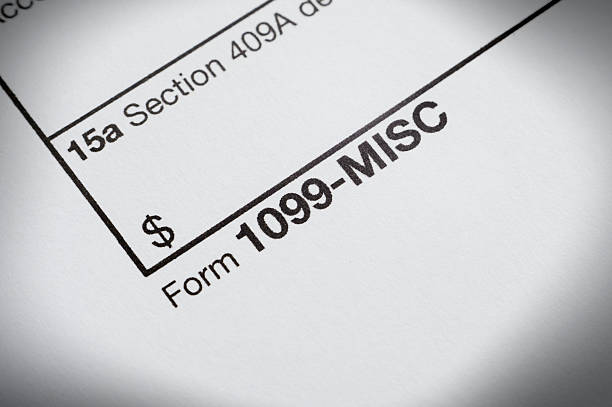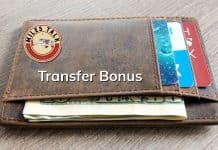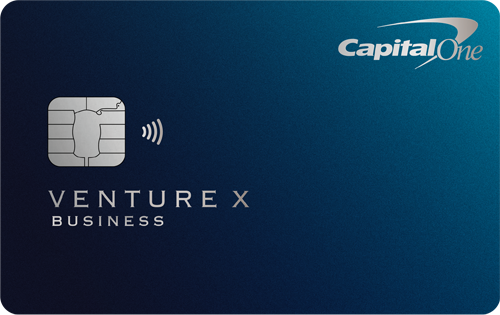
As the 1099s start rolling in, I wanted to make a quick compendium of what to expect, what you can fix, what you can’t fix, and that sort of thing….
In this article
1099s for Credit Card Referrals
First, what the what? If you are new to this, credit cards started sending out 1099-MISC forms (miscellaneous income) for the value of points awarded from Refer-a-Friend offers on your credit cards. This started many years ago, though I wistfully remember the before times…
You will get this if your aggregate earnings total $600 or more from one bank under one SSN. (It’s possible that you may need to hit $600 on personal cards and/or $600 on business cards with that bank and not combined, but I’m not sure.) Maybe a reader can chime in in the comments.
The bank assigns a value to the points and mails you a 1099 which you’ll need to use for your taxes whether you self-file or have an accountant.
There are some changes and anomalies this year that I want to call attention to right after a few basics:
The Basics
With nearly every bank (definitely with Chase, Citi, Capital One, and American Express – I’m not sure about Bilt), these will come in the physical mail.
Yes, while literally everything else is online, these are not? Why? I really wish I knew but my guess is around non-connected systems.
So if you are a digital nomad, make sure someone picks up your mail by mid-February. Why then? The deadline for banks to mail 1099s is January 31st.
What happens if one gets lost in the mail? Well, you’d never know it and eventually the IRS would send you a bill for the income you forgot to put down.
Also, these forms are always a bit mysterious. They should include at least the last 4 digits of the credit card it corresponds to and there may be multiple accounts on one page.
If you have small business and personal cards, expect to get one for each side – or more than one. Maybe 10! Have fun scanning in these sheets to your CPA – especially the oddly long sized Amex ones 😉
The Value of the Points
In most cases you will see a value of 1 cent a point. I guess that’s just easy. In past years, I’d seen Chase value Marriott Bonvoy points at half a cent and Amex value Hilton points at half a cent. This year both banks are ascribing a value of 1 cent each to those. 🙁
That means you are paying tax on a value twice of what they are actually worth.
Whatever the bank says it is, it is.
Happily some banks play nice. Bask Bank will issue you a 1099 with a value of just 0.42 cents on earned American Airlines AAdvantage® miles.
Bilt is also super nice – using a value of just 0.55 cents each despite their points being worth around 2 cents.
So yes, you are being taxed on Bonvoy and Hilton Honors points at roughly twice the rate you are being taxed on Bilt points.
There are always anomalies.
Last year the big anomaly was the revelation that Capital One taxes you for using your Global Entry credit.
An anomaly this year?
Chase is reportedly sending a 1099 for signup bonuses on the Bonvoy Boundless card where you got 3 or 5 free nights. They really shouldn’t have, in my view, because these represent the same “rebate on spend” as any other signup or welcome bonus.
And by the way, that is why these are taxed and points you earn from welcome bonuses and spend are not: the IRS taxes points that are not tied to actually spend on a card. Even if that bonus means you got an effective 40% rebate on your spend, it’s not taxable. But refer a friend involves no spend for you, so they are taxable.
And yes, this absolutely should affect what cards you try to refer from. If you have a 50% tax rate and refer Hilton or Marriott points, you are going to pay half a cent a point – the exact value. Maybe still worth it if you always exceed that in value, but maybe not.
Can You Dispute the Value of the Points?
Yes – but really hard no.
People will say you can report a lower number on your tax return with a note explaining why.
Do you REALLY want to have the IRS getting a human to investigate your return to save a few bucks? I’d say no. You do you 😉
What If There is a Mistake?
There will be a number on the form to call, although the people answering may not know what’s going on. The Chase form goes to their collections department which has been giving the task of dealing with this. So don’t expect them to discuss the finer points. But they can file a ticket for a correction.
But they will NOT change the value of the points.
If you didn’t refer a single person and got a form, it’s worth calling to open an investigation. That is how I learned the truth behind that Capital One tax on the Global Entry credit last year.
If your address is in the wrong state, that is another thing they can work to fix – for example.
Also – it’s always possible that enough people complain about something, like the Bonvoy Boundless 1099s, that they do in fact change it and issue Corrected Form 1099s.
And if you got 1099s for thousands or tens of thousands of dollars worth of points? You’re not unusual – you’re just one of us 😉
Questions?
Let me know below in the comments, on Twitter, or in the private MilesTalk Facebook group. And don't forget to follow me on Instagram for all sorts of tips on miles, points, credit cards, and travel.
If this post helped you, please consider sharing it!
You can find credit cards that best match your spending habits and bonus categories at Your Best Credit Cards.
New to all of this? My “introduction to miles and points” book, MilesTalk: Live Your Wildest Travel Dreams Using Miles and Points is available on Amazon and at major booksellers.

















Have you seen this? Got a few 1099’s from Chase, but the same account appears on 2 different 1099s. This seems to be duplicated? How to handle?
(One has a note under it called “LOYALTY RNB” and the other doesnt)